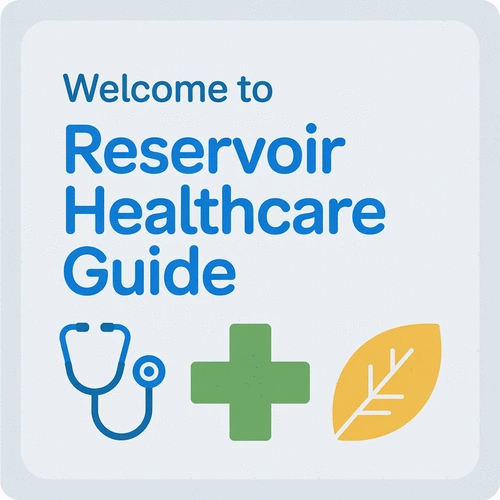Have you ever faced a tough decision about healthcare options? Choosing between private and public hospitals can feel overwhelming, but understanding the landscape is the first step towards making informed choices that align with your health needs.
What You Will Learn
- The funding sources for private and public hospitals, affecting care availability.
- Differences in patient experience, including wait times and room types.
- How treatment outcomes, such as recovery and complication rates, vary by hospital type.
- The role of healthcare quality indicators, such as staff qualifications and patient satisfaction scores.
- Key considerations about costs, including out-of-pocket expenses versus insurance coverage.
- The importance of local health initiatives in supporting your healthcare journey.
Private vs. Public Hospital Comparison in Reservoir
Delve into the key distinctions between private and public hospitals, focusing on funding, patient experience, and specialist access to guide your healthcare decisions.
Private Hospitals
- ✓ Funding: Private health insurance & out-of-pocket
- ✓ Patient Experience: More personalized, private rooms
- ✓ Specialists: Choice of own specialists
- ✓ Wait Times: Often shorter
Public Hospitals
- ✓ Funding: Government funds (Medicare)
- ✓ Patient Experience: Public wards, essential services
- ✓ Specialists: Limited availability, assigned
- ✓ Wait Times: Can be longer
Understanding the Landscape of Hospital Treatment in Reservoir
As we dive into the world of hospital treatment, it’s essential to understand the unique landscape we’re working with here in Reservoir. The healthcare system can be complex, especially when you're considering whether to choose a private hospital or a public hospital. Each option has its own set of advantages and challenges, impacting not just your experience, but also your health outcomes. So, let's break down what this means for you and your loved ones.
In Australia, the distinction between private and public hospitals is significant. Public hospitals are funded by the government and provide care primarily through the Medicare system. In contrast, private hospitals rely on private health insurance and out-of-pocket payments, offering a different level of service and amenities. Understanding these differences can empower you to make informed decisions about your healthcare journey. For further insights into how various factors influence hospital quality, you can refer to research on hospital characteristics and quality metrics.
Defining Private and Public Hospitals in Australia
What exactly separates private hospitals from public ones? Here are some key factors:
- Funding Sources: Public hospitals are financed by government funds, whereas private hospitals are funded through private health insurance and patient payments.
- Patient Experience: Private hospitals often provide a more personalized experience, including private rooms and shorter wait times.
- Access to Specialists: Private facilities typically allow you to choose your own specialists, while public hospitals may have limited availability.
These distinctions are particularly relevant when considering the specific needs of your treatment. Knowing where to go can make all the difference in your healthcare experience.
The Importance of Treatment Outcomes for Patients
When choosing between a private or public hospital, treatment outcomes should be a top priority. It's crucial to understand how various factors, such as hospital type, can impact your recovery. For example, recent studies have shown that certain hospital types may have varying impacts on patient outcomes following specific surgeries.
- Recovery Rates: Different hospitals may report varying success rates for similar procedures.
- Complication Rates: Investigating complications associated with specific hospitals can help you gauge safety.
- Post-Care Support: Some facilities offer more extensive follow-up care, which can enhance recovery.
Research shows that patients who are well-informed about treatment outcomes tend to have better experiences and health results. It’s all about making choices that align with your health goals!
Healthcare Quality: What It Means for Your Treatment
Healthcare quality is another critical element affecting your treatment experience. This refers not just to the medical care you receive but also to the environment and support surrounding it. It's also worth noting that ownership models, such as those involving private equity, can influence hospital quality and patient safety.
- Staff Qualifications: Look for hospitals with highly trained staff and clear accreditation.
- Facility Standards: Modern equipment and clean facilities can significantly impact your care.
- Patient Satisfaction Scores: Reviews and testimonials from past patients provide insight into the quality of care.
Ultimately, whether you opt for a private or public hospital, knowing about quality indicators can lead to better health outcomes. Always remember, your health is worth the extra research!
I couldn't find a specific YouTube video titled "Comparing Private vs Public Hospital Treatment Outcomes in Reservoir: What Patients Should Know." However, a video that compares private and public healthcare systems could be relevant. Here is a suitable alternative:
Interactive Poll
We want to know your thoughts! If you had to choose between a private and a public hospital for your healthcare needs, which would you prefer and why? Please share your views below:
Frequently Asked Questions (FAQs)
Q: What are the main funding differences between private and public hospitals?
A: Public hospitals are primarily funded by government funds through Medicare, making services generally free for Australian citizens. Private hospitals, on the other hand, rely on private health insurance and out-of-pocket patient payments for their funding.
Q: How does patient experience differ between private and public hospitals?
A: Private hospitals often offer a more personalized experience, which can include private rooms, more amenities, and shorter wait times for elective procedures. Public hospitals typically provide essential services in public wards, and wait times can be longer.
Q: Can I choose my own specialist in both types of hospitals?
A: In private hospitals, you generally have the flexibility to choose your own specialists. In public hospitals, specialists are usually assigned to you based on availability and need, which can mean limited choice.
Q: What factors should I consider regarding treatment outcomes?
A: When considering treatment outcomes, it's important to look at recovery rates, complication rates for specific procedures, and the availability of post-care support. Researching these aspects can help in making an informed decision about where to receive care.
Q: How can I assess the quality of healthcare at a hospital?
A: Healthcare quality can be assessed by examining staff qualifications and accreditation, the standards of facilities and equipment, and patient satisfaction scores or testimonials. These indicators provide insight into the overall quality of care provided.
Summarizing Your Options in Hospital Treatment
As we explore the hospital treatment landscape in Reservoir, it’s crucial to summarize your options clearly. Understanding whether to choose a private or public hospital can significantly impact your healthcare experience. Here are the key choices you have:
- **Private Hospitals**: Often offer shorter waiting times and more personalized care.
- **Public Hospitals**: Provide essential services that are accessible to everyone, regardless of insurance.
- **Elective Procedures**: Can be more easily scheduled in private settings.
- **Emergency Services**: Available at both, but response times may vary.
By weighing these factors, you can make informed decisions that align with your healthcare needs. Remember, the right choice depends on your specific circumstances and treatment requirements.
Key Takeaways: Understanding Your Choices
To help you navigate your options, let’s focus on some essential takeaways. First, the availability of resources in both private and public hospitals can shape your experience. Here’s what you should keep in mind:
- **Access to Specialists**: Private hospitals may offer a wider range of specialists at your fingertips.
- **Quality of Care**: Both sectors can provide high-quality care, but patient engagement often differs.
- **Costs Involved**: Assess out-of-pocket expenses versus insurance coverage for better planning.
- **Community Health Initiatives**: Engage with local health programs that support your journey, no matter your choice.
These takeaways offer a framework for understanding your hospital treatment options in Reservoir. I encourage you to reflect on them as you move forward in your healthcare journey.
Encouragement to Make Informed Healthcare Decisions
Making informed decisions about your health is a journey, and at Reservoir Healthcare Guide, we’re here to support you every step of the way! I encourage you to gather information, ask questions, and reach out for guidance. Every bit of knowledge empowers you to take charge of your health.
Consider discussing your options with family and friends. Sharing experiences can provide valuable insights that might influence your decisions. Each of us has a role in our health journey, and together we can foster a community of informed patients.
Recap of Key Points
Here is a quick recap of the important points discussed in the article:
- Understand the Differences: Public hospitals are government-funded and accessible via Medicare, while private hospitals rely on health insurance and offer more personalized care.
- Focus on Treatment Outcomes: Consider recovery rates, complication rates, and post-care support when choosing a hospital.
- Evaluate Healthcare Quality: Investigate staff qualifications, facility standards, and patient satisfaction scores for informed decision-making.
- Assess Your Options: Weigh the benefits of private versus public hospitals based on individual healthcare needs.
- Engage with Community Health Initiatives: Participate in local programs that can enhance your wellness journey.










